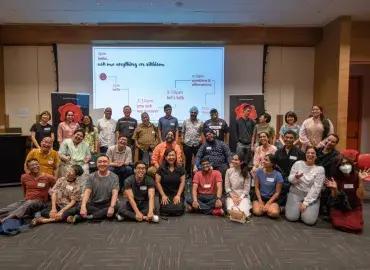Interfaith Support Group Helps Indonesian Women Overcome Mental Stress from COVID-19
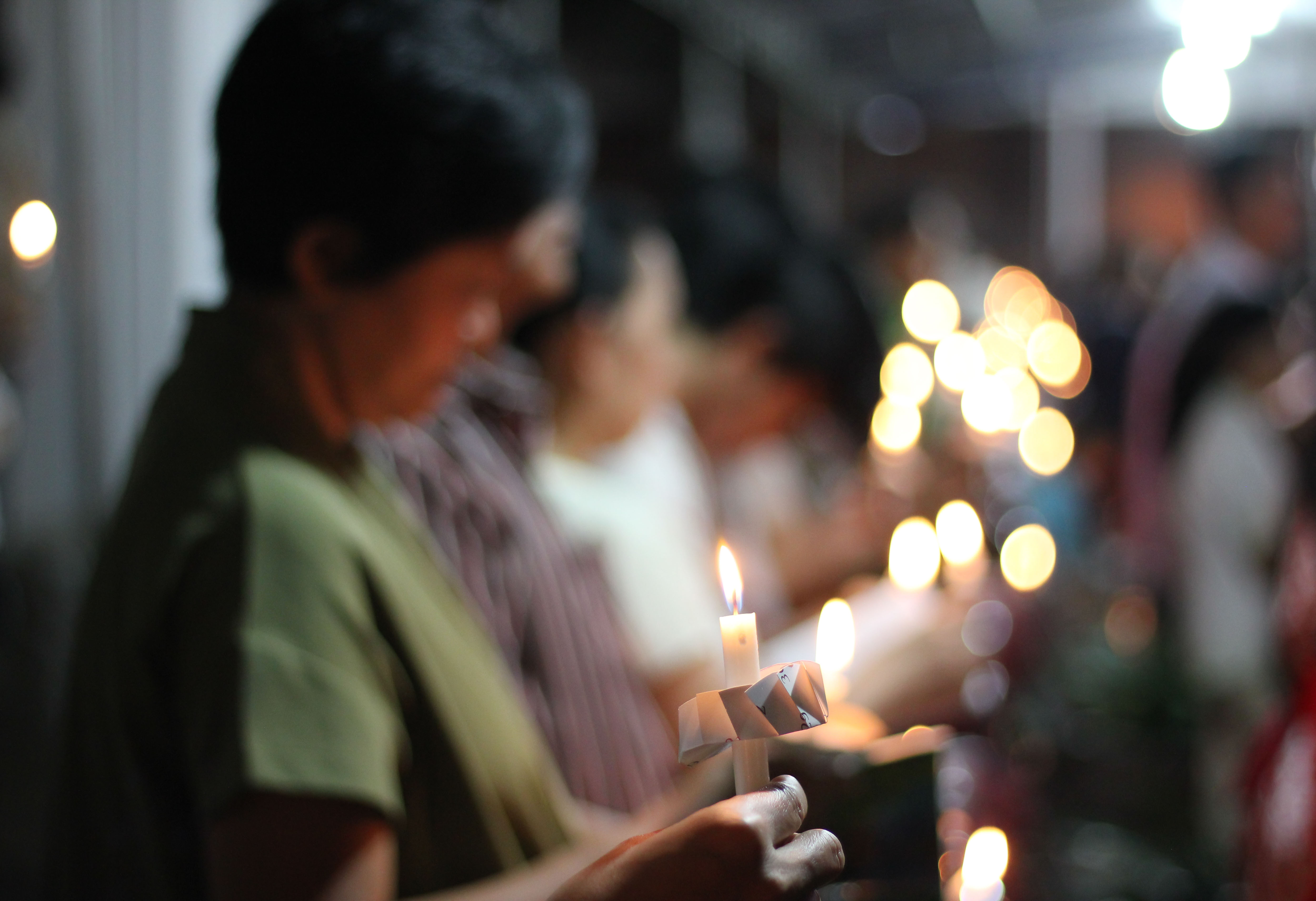
Alongside her colleagues on a Zoom call, KAICIID Fellow Wiwin Rohmawati described how she set out to help vulnerable Buddhist, Christian and Muslim women during the COVID-19 pandemic in Indonesia.
“Women face a double burden when they have to work from home,” said Rohmawati. “They do the domestic work and also accompany their child to school from home, so they have many things to do. Of course, this causes stress or mental health issues for a lot of women.”
Rohmawati is from Indonesia, which has the highest number of COVID-19 cases and deaths in Southeast Asia. The country recently reported a record daily rise in virus infections with 6,267 cases. This marked the third record high in a week with 169 new deaths, taking the total number of fatalities to 16,815.
The pandemic has also impacted the Indonesian economy – the biggest in South East Asia – plunging it into its first recession in 22 years. Economic growth fell 3.49 per cent in the third quarter of 2020, compared to the same period in 2019. Authorities have predicted that as many as 3.5 million people could lose their jobs due to the COVID-19 downturn.
Among those worst affected by COVID-19 are women, many of whom have limited access to health services and are at a severe economic disadvantage.
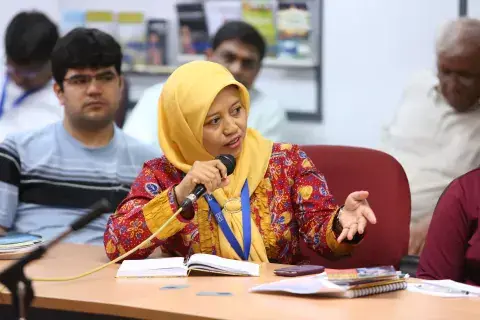
According to a roundtable held by UN Women and the Organization for Economic Co-operation and Development (OECD) earlier this year, the majority of Indonesia’s hospitality workforce is comprised of women workers. Although they make up more than half of the 75 million workers in restaurants and hotels, women have had their working hours cut by 50 per cent. Men, in comparison, have had a 35 per cent cut in working hours.
Finding a solution for mental stress
Recognising the immense stress that Indonesian women are under, Rohmawati launched a KAICIID-supported project titled “Strengthening the Interfaith Women’s Solidarity Movement to Overcome the COVID-19 Pandemic.” Drawing on her experience as Vice Director of Institute of Southeast Asian Islam (ISAIs) at Sunan Kalijaga State Islamic University and as a board member of the Forum for Inter-religious Harmony in Yogyakarta, Indonesia, she has used interreligious dialogue to help women throughout the crisis.
Rohmawati set out to overcome two main challenges to women from different faiths and beliefs by increasing their skills in facing the problems caused by the pandemic, as well as strengthening the mental health of vulnerable women.
“In Indonesia, all people are religious. Everyone has their religion on their ID card,” she said. “During the pandemic we needed to support and strengthen each other. The activities had this in mind. We found that online coordination is different from offline, so it needed some adaptation.”

Much of the work conducted by Rohmawati was achieved using online tools like Zoom and WhatsApp in a bid to work around lockdowns and social distancing measures. She set up an online mental health forum on WhatsApp and organized training for 20 facilitators so they could provide support to vulnerable women. She also coordinated mental health initiatives on Zoom with groups of ten participants and facilitators meeting online every fortnight for three months.
Online resources for COVID-19 mental health support
“A female Christian leader told me that this is the first time she has used a WhatsApp group for mental health support,” said Rohmawati.
Rohmawati has also held online mental health seminars during the pandemic, attended by 400 participants from a number of faiths on Zoom and viewed by over 12,000 people on Facebook.
Another interfaith initiative saw the production of a series of videos offering practical guidance on issues raised by the pandemic. These included “How to Meet God in Our Own Home and Around Us”, presented by Priest Patrisius Mutiara Andalas SJ, a lecturer at Sanata Dharma University and “How Religions and Religious Leaders can Contribute to Handling the COVID-19 Pandemic in Indonesia”, presented by Kyai Haji Abdul Muhaimin, an interreligious dialogue practitioner.
Rohmawati also published an interfaith guidebook on the pandemic, which included contributions from 14 writers from diverse faiths.
“We got input on our book from Hindus, Muslims, Catholics, Confucianists and other local beliefs,” she said.
Rohmawati is confident that solidarity between Indonesia’s faiths will help her community, and women in particular, to get through the challenges of the pandemic.
“In all of our work we try to input as much diversity as possible in terms of religion,” she said. “The power of our community is in interfaith dialogue.”
To find out more about how faith leaders can support mental health, watch our World Interfaith Harmony Week webinar titled Faith on the Frontlines.
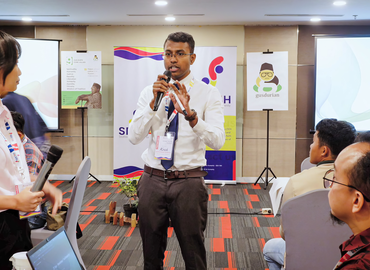
Communities suffer, not only from the echoes of broken men’…
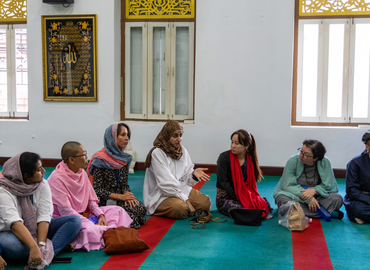
Peacebuilding today requires more than technical solutions; it demands inclusive, values-…

